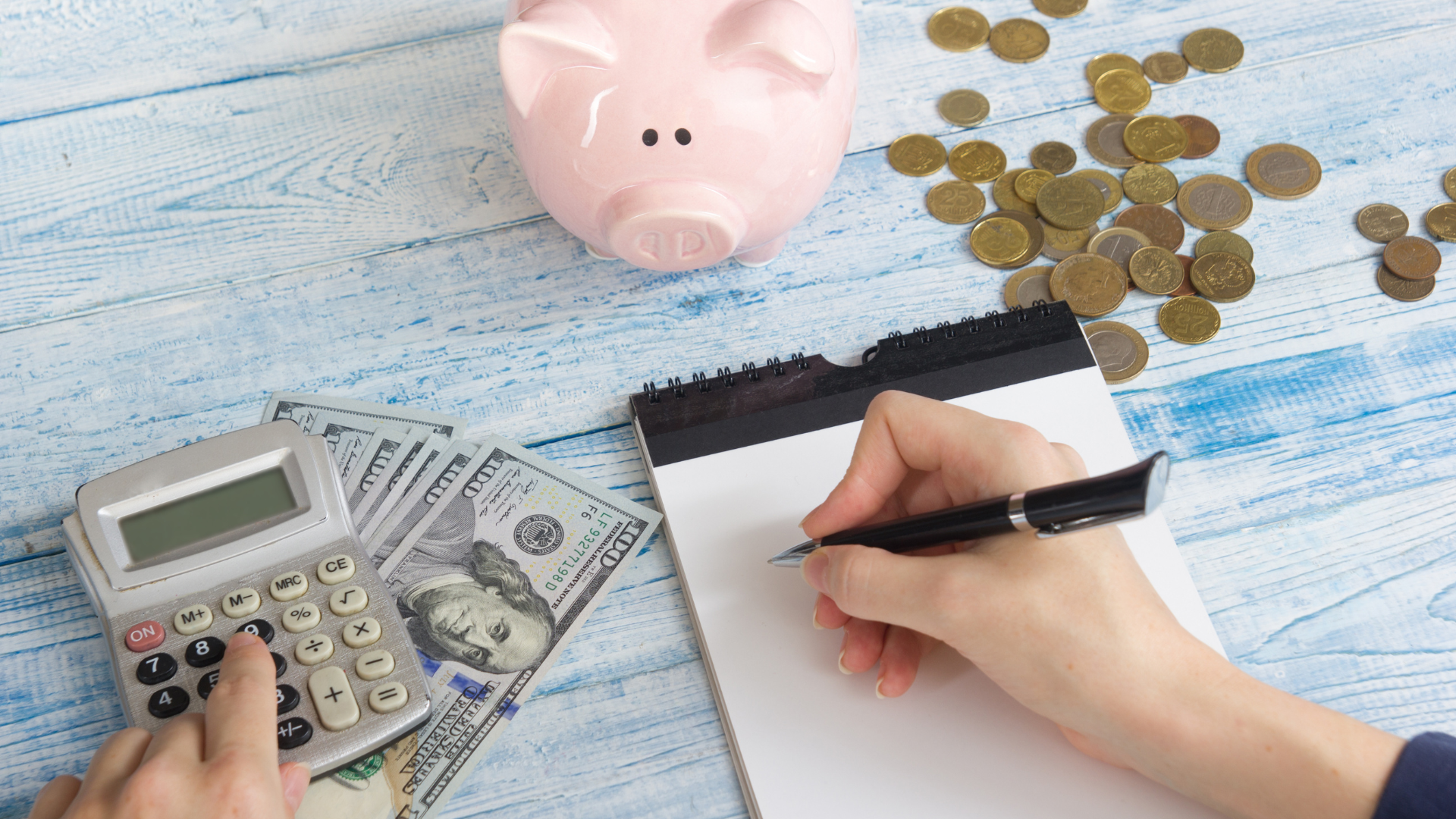If you have been trying to get your personal finances in order, then you have been searching to find ways to do so.
That is why you have stumbled upon this helpful guide to show you what the five foundations of personal finance are and how they can work for you so you are able to save money, find financial success, and build wealth.
Today, we will go into some important detail about what Dave Ramsey’s five foundations are, and how they can help you gain financial confidence when dealing with your spending habits.

Save a $500 Emergency Fund
No matter what happens in your life, it is evident that there are going to be some emergencies that crop up every now and again.
Because of this, you need to make sure that you have the extra cash to deal with these as soon as they happen.
If you are living paycheck to paycheck, then you know how hard it can be to scrape together enough money to help you buy what you need for your family as well as for rent and utilities.
Saving money is a necessity, however, not all Americans are able to do so, as around 38 million Americans live below the poverty line, which is a staggering amount to think about.

Why Save $500?
You may be wondering what the significance is of $500, well, this should be the amount you save at least, hopefully regularly.
It would be great to save more, but if you are not able to do so, for instance, you have loans and car payments to deal with, then you should aim for $500 to start with.
Saving this amount of money will help you if an emergency expense comes up and you do not want to use your credit card to pay.
Keeping this going will help you reduce your payments, as well as any unnecessary ones that you are paying without thinking.
Always keep a separate account with this money to help you with reaching financial freedom, as you do not want to burn that down too much and too fast.
Saving this amount regularly can also give you a certain surplus to work with. After saving $500 for a few months consistently, you’d have enough money to invest in something for your retirement. This could be stocks, bonds, mutual funds, or something physical like one from a list of top gold coins to buy or a silver ring.
In any case, the $500 account can work in multiple ways to provide you with a financial lifesaver whenever you find yourself in need of that extra bit of cash.

How Can You Reduce Spending?
If you don’t think that you can save $500 for your emergency fund, then take a look at your day-to-day spending and see what is going on.
You could find multiple ways to reduce your output without having to adjust too much, so you can build on your emergency fund.
- Eat at home rather than go out to eat.
- Use public transportation instead of taxis or Uber.
- If you have a club membership or any type of subscription that isn’t necessary, cut them off.
- Use coupons for food shopping, and go online to check out deals.
- Instead of using your car all the time, walk places and save money on fuel.
Cutting back can add to your emergency fund without you having to compromise too much.
You may not realize that you lose money in a wider sense each time you buy something you don’t really need, but it is true.

Get Out of Debt
It is pretty normal for the average American to be in debt, whether it be trying to pay off a new car or paying for college, there is always going to be some level of debt along the way.
Debt will mess with your financial stability and your personal finance, and even when you are repaying your loans, it will still have a significant impact.
Getting debt free is not going to be easy, that is why it is important for your long-term financial goals to have a plan in place when dealing with paying your debts off.
Stick to One Loan
Before you decide to go for another loan, make sure you pay off your first one before making any moves.
The more debt at your feet, the more interest will build up and bury you under it all.
You need to think strategically here about what you are aiming for.
If you take it bit by bit, you will be able to clear your debts quicker, and you won’t be extending the years and interest if you focus on one at a time.

Pay Cash For Your Car
Want a car – pay cash.
It is as simple as that and it won’t put you in debt trying to pay it off each month.
Interest rates are on the rise, and if you are planning on financing your new car through a loan, you could be paying way more for it than you would like to, which will be a burden on your finances.
If you really need a car, then research is your friend here.
Take a look around at the various deals they have on, and see what savings you have that you can put towards a new car.
Don’t go for a flashy one that has the latest tech if you can’t afford it.
Pick one that can get you from A to B and is safe. It may not be glamorous, but nor is being surrounded by debt and not getting out of that financial hole.

What Ways Can You Lose Money When Buying a Car?
- Interest – It is included in the payment, which will make it a lot more expensive than the price you originally saw.
- Payment – If you are saving money, then you will need to stop so you can pay off your car. This can set back your personal finance goals, and deplete your emergency fund.
- Depreciation – Vehicles lose their value over time, so if you want to sell it on, then you will need to sell it at a knockdown price, no matter which way you are looking at it, you will lose money, and with the loan on top, that’s not going to help.
Pay Cash For College
There are a lot of student loans out there for people to get so they can go to college, whilst this looks to be one of the only ways, it can be a serious debt that can make students, after they graduate, tied to their college for many many years, with quite a lot not able to pay it off.
How Can This be Avoided?
A lot of people may only see student loans as the best option, there are others out there that can be used in place of these loans.
- Scholarships can be applied for as well as student aid.
- Parents and other family members can chip in.
- You can choose a school that doesn’t have high tuition costs.
- Choose a college close to home so you can live with your parents instead of renting an apartment/house.
- Go for a part-time job to help you pay the fees.
- Take a gap year and build on your money by working for the year and then attend college the next year in a better financial state.

Build Wealth and Give
Finally, build on what you have and be generous to others.
Don’t just think about creating a savings account, see what you can invest in and what retirement funds you can put together to support you and your family down the road. Diversifying your assets through strategic investments can lead to greater financial growth and stability.
It is advisable to seek council of vistica wealth advisors certified financial advisors or similar professionals in order to ensure that your investment strategy aligns with your financial goals and risk tolerance. They can provide personalized advice on how to diversify your portfolio, whether through stocks, bonds, real estate, or other investment vehicles.
Furthermore, as you navigate the complexities of financial planning, it’s crucial not to overlook the importance of estate planning. Collaborating with an experienced estate planning lawyer can help you develop a comprehensive strategy to protect your assets and ensure your family’s financial security. This can involve creating legally binding documents like wills and trusts that outline your wishes for asset distribution, guardianship, and healthcare decisions.
An estate planning lawyer can guide you through the process, ensuring that your estate plan is well-structured and aligned with your goals. By proactively engaging in estate planning, you can provide your loved ones with peace of mind and establish a lasting legacy that will endure for generations to come.
Therefore, it is essential that you start by educating yourself about personal finance; consult professional financial advisors and browse through the web to find material that you can learn from.
Find good investment vehicles and different savings accounts which can work in cohesion with your goals. If you want financial growth, consider looking at high-risk-high-reward assets such as stocks.
Likewise, if you want to arrange finances for your retirement, for instance, consider looking at precious metals iras.
But before you spend your money on anything, you’d want to make a thorough analysis to ascertain the profitability of the investments you plan to make.
Taking care of your money is incredibly important, but think about why you are doing it and what it is going towards.
Sit down and think about career goals and personal goals, you will be able to decide from this what exactly you’ll need.
Conclusion
Hopefully, the question – “what are the five foundations of personal finance?” has been answered for you today, and you can use Dave Ramsey’s advice and take these basic steps to help you accumulate your wealth and do the right thing for yourself and your journey.
It is not easy to get started, and you may fall a few times, but it is worth it, and you will start seeing the rewards if you stick to it.

